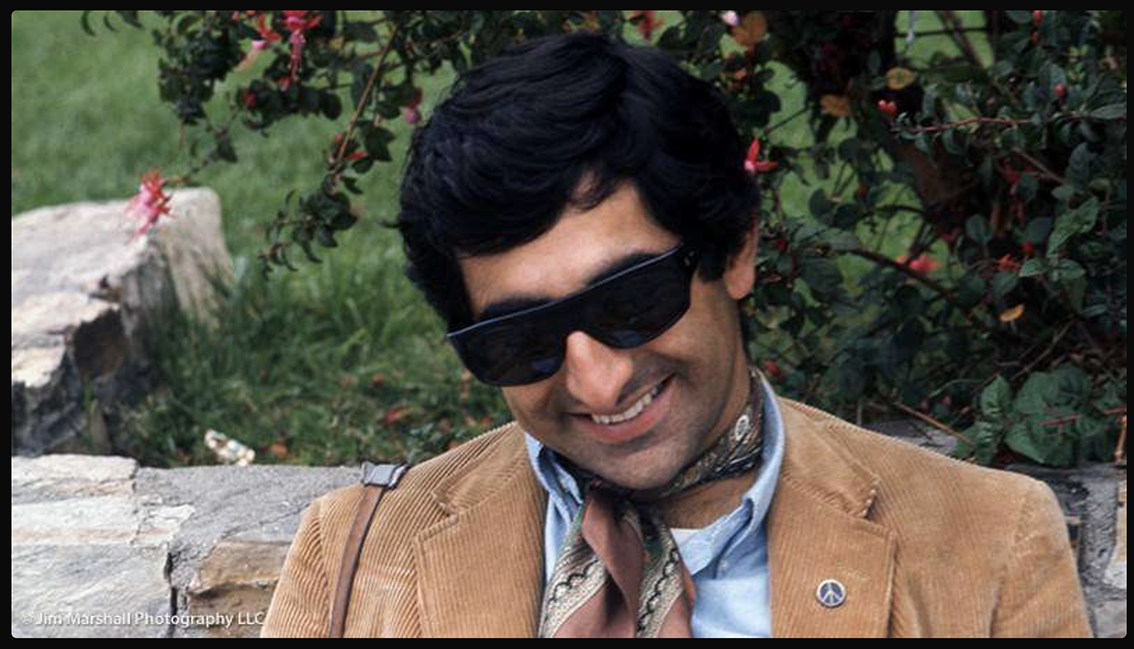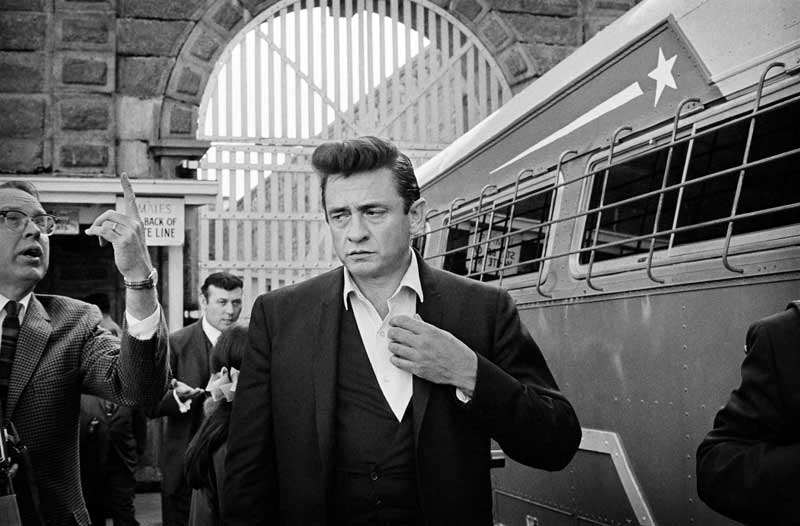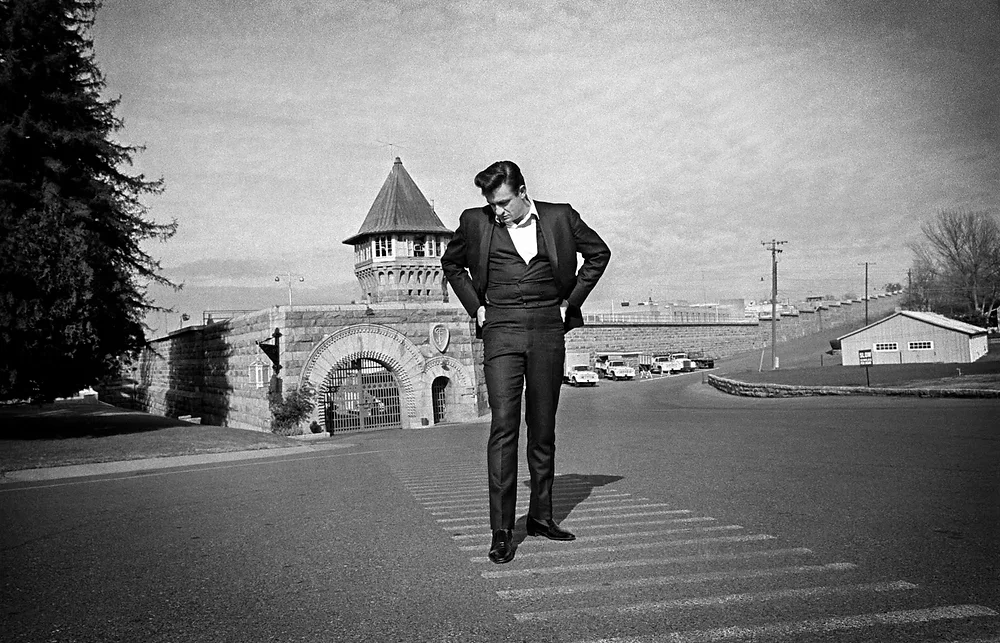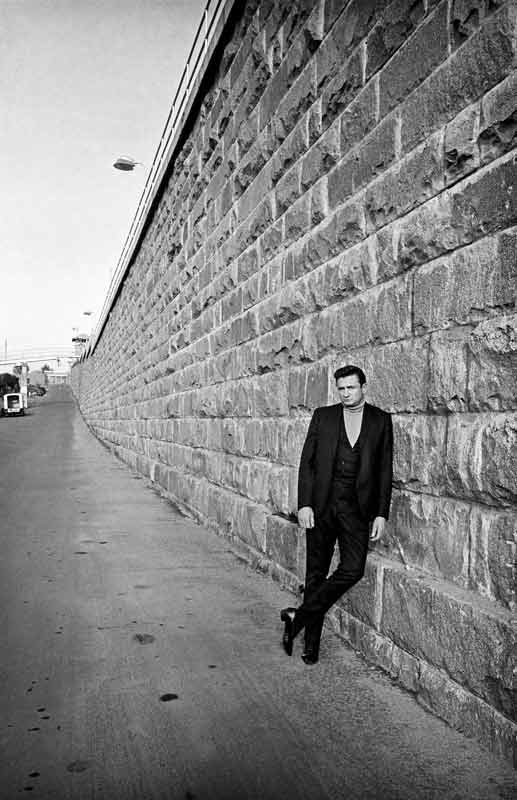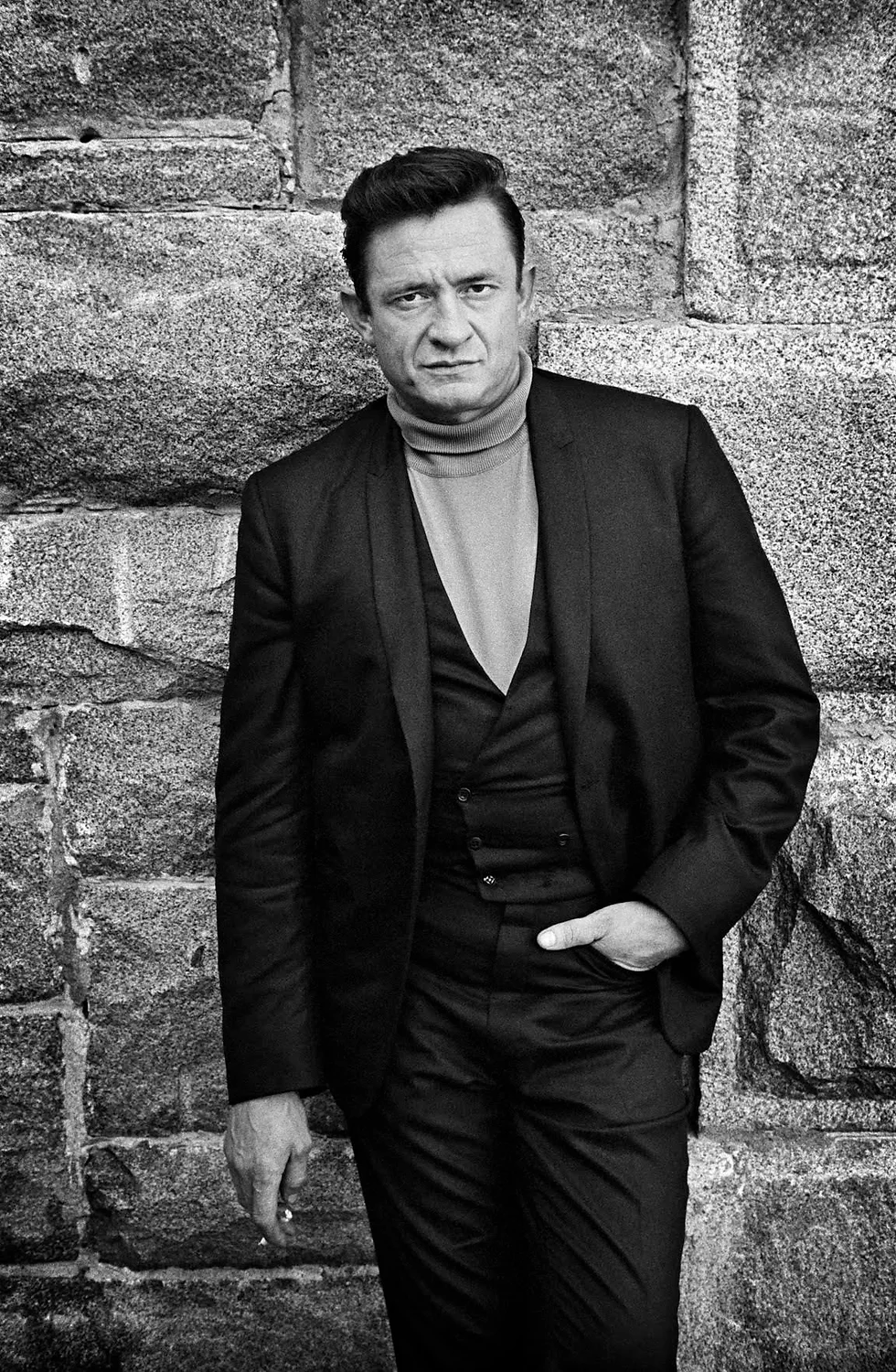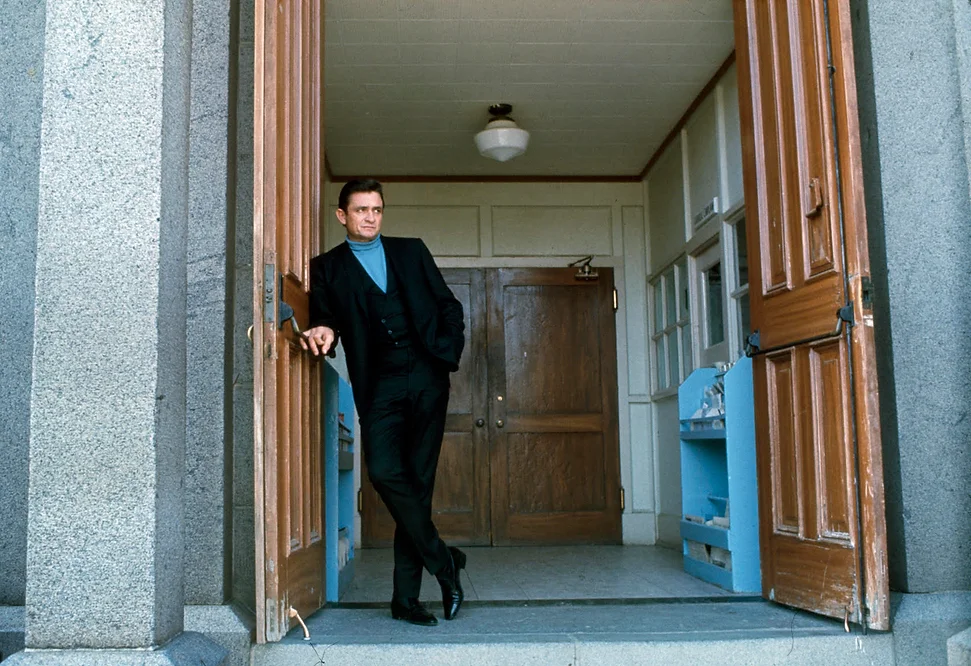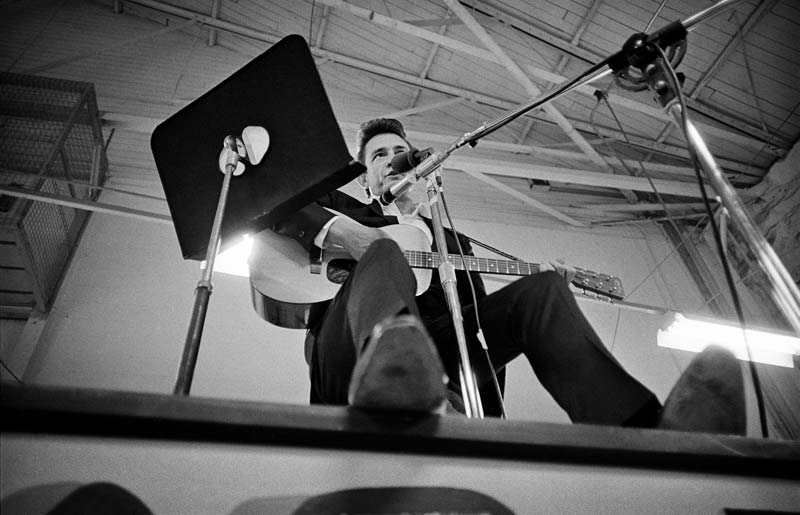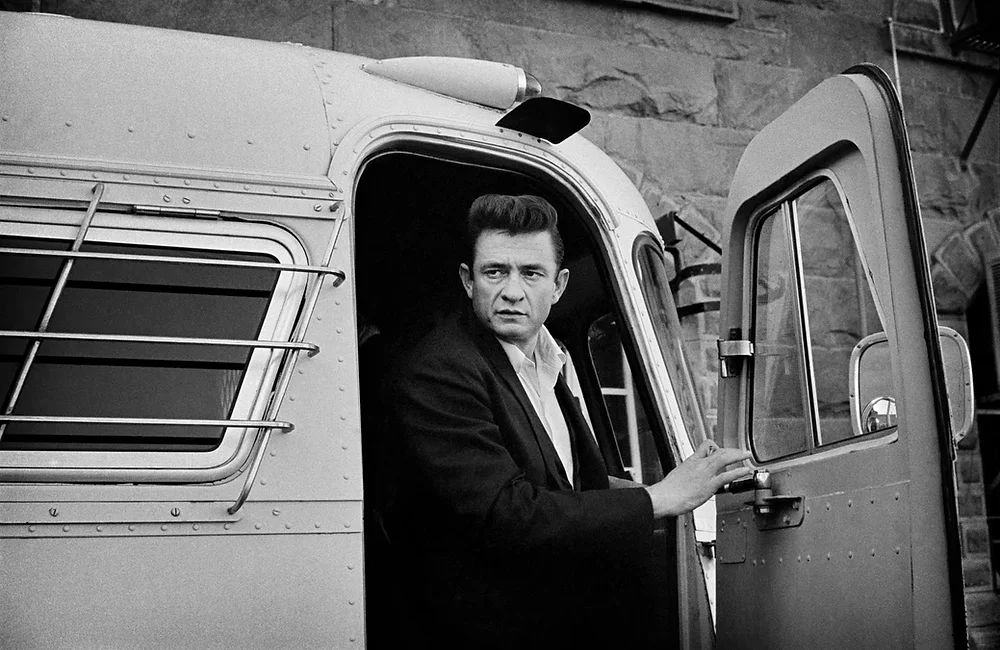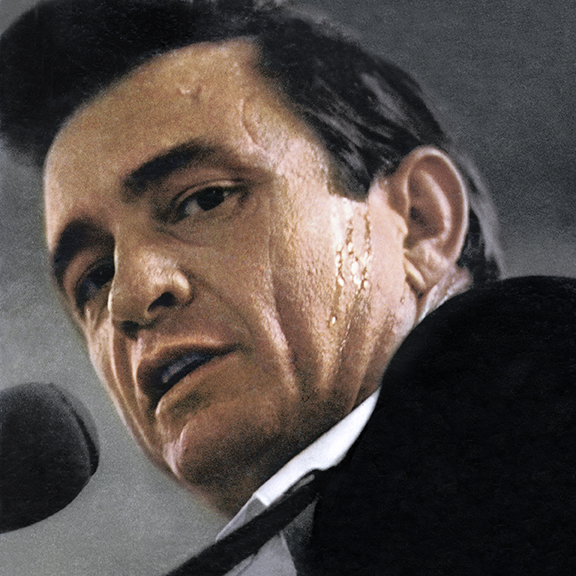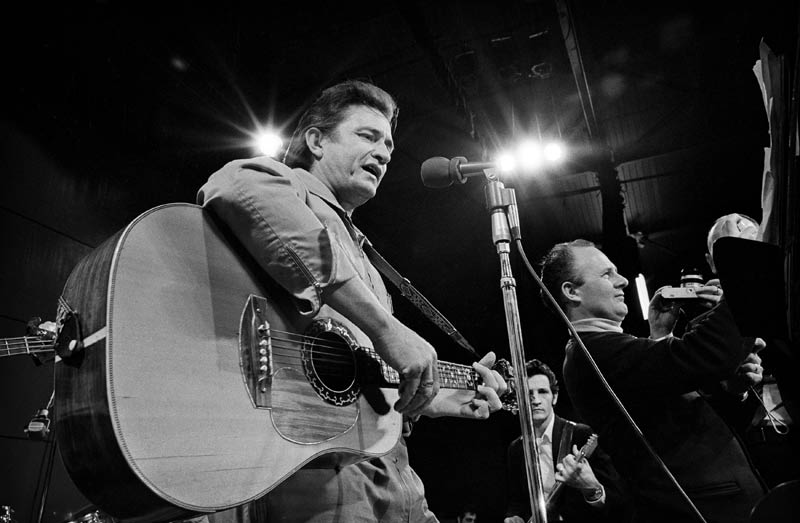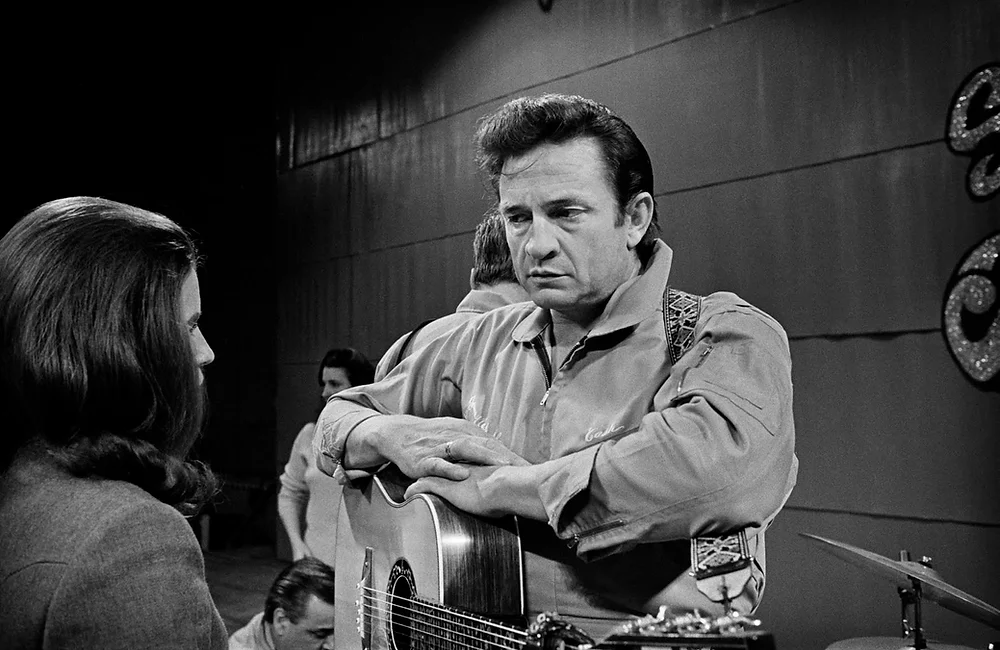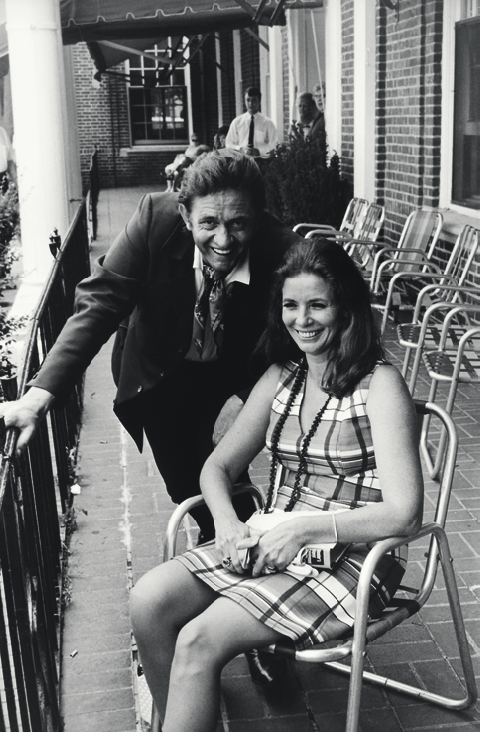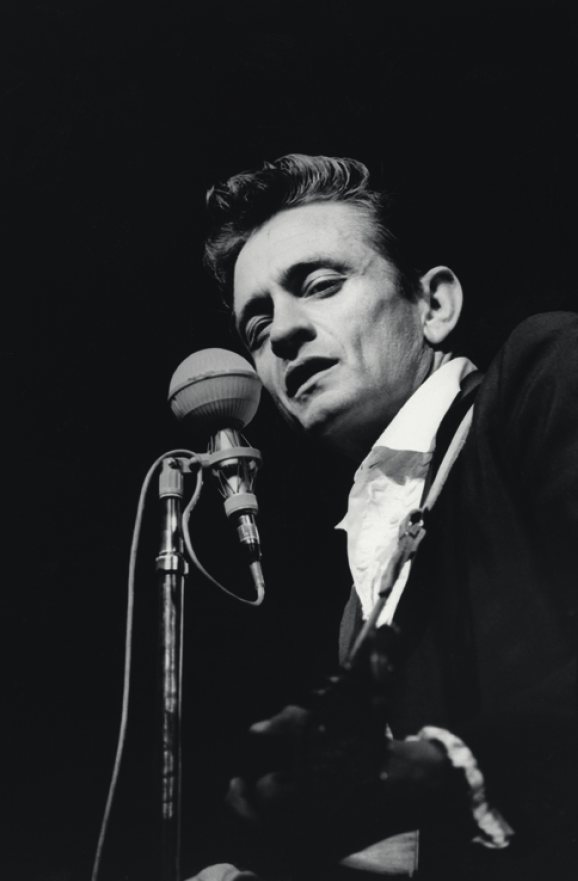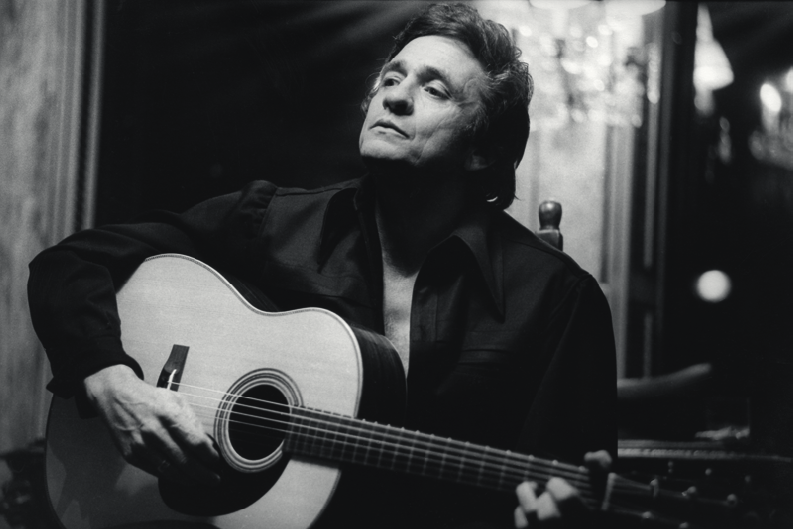Johnny Cash by Jim Marshall
Limited edition photographs authorised by the Jim Marshall Estate
Jim Marshall is universally acclaimed as one of the greatest music photographers of his or any generation, and we were all saddened when he passed away unexpectedly in March 2010.
On this page we shine a light on the range of limited edition estate authorised Johnny Cash photographs released posthumously by the Jim Marshall estate.
These are offered in a single physical size, most in a limited edition of 25 examples worldwide. Each is accompanied by a certificate of authenticity issued by the Jim Marshall estate. Turnaround time is approximately 3 weeks between order and delivery.
Johnny Cash
Jim Marshall first met Johnny Cash in 1963 in New York, while photographing for Columbia Records, and developed a friendly relationship with him and June. Johnny Cash requested that Jim document the Columbia Records sessions at Folsom and San Quentin, invited him to Thanksgiving at the Cash family home, and Jim was given unlimited access to the set of The Johnny Cash Show.
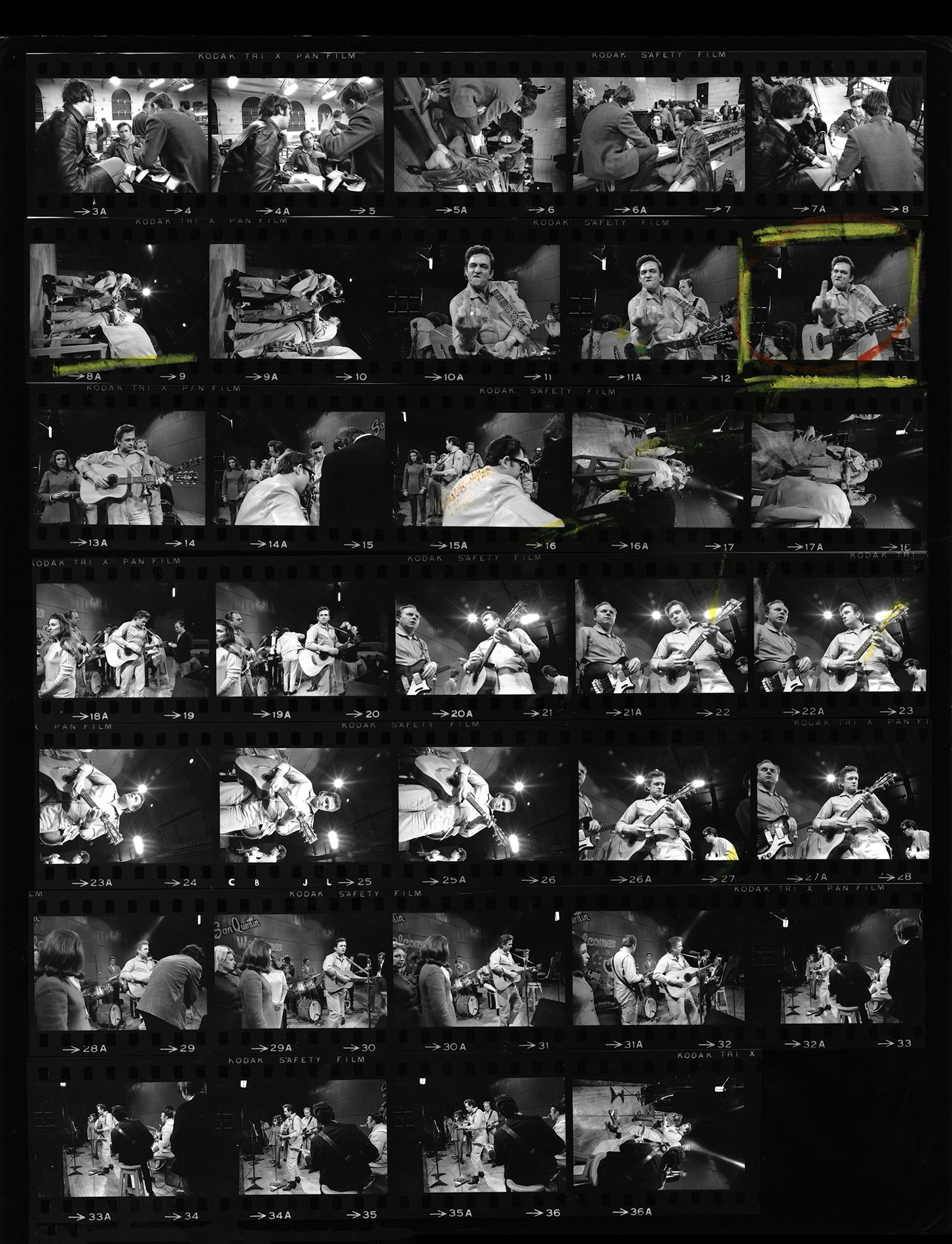
Johnny Cash flipping the bird contact sheet , San Quentin prison, 1969 – 20×24 inch paper
Jim Marshall’s photograph of Johnny Cash flipping the bird during the soundcheck for his concert at San Quentin prison on 24 February 1969 is undoubtedly the most famous photograph of Johnny Cash.
Warming up, Johnny Cash was chatting with the band and with Jim Marshall. Jim remembers saying, “Hey, John, how about a picture for the warden?” The unforgettable frame was the result. The ‘hero’ shot is the final frame on the extreme right of the second row of images, and is marked up with yellow chinagraph pencil markings on the contact sheet. Contact sheets are always interesting working documents, and this one is no exception, particularly as you get to examine the two warm up ‘bird-flips’. You can see exactly why Jim Marshall selected the frame he did – the Cash finger clearly works best against the black background, and that only happens in one frame.
Biography
As a fixture on the San Francisco scene, Jim Marshall was there to immortalize local bands like the Grateful Dead, Jefferson Airplane, Big Brother, and Santana long before they were household names. In 1966, Marshall was the only photographer allowed backstage access to what proved to be The Beatles’ final concert at Candlestick Park. A year later, Jim’s photos from the Monterey Pop Festival would become as woven into the lore of that gig as would the breakout performances of Hendrix, Janis Joplin, and Otis Redding.
Marshall was the first photographer to shoot The Who and Cream in the U.S; he was selected as one of the official photographers of the Woodstock Festival, covered the Rolling Stones ’72 tour for Life magazine, and is the only photographer able to squeeze the friendly rivalry between Janis Joplin and Grace Slick into a single frame. Marshall demanded total access and lived 24-7 with his subjects, and his pictures reflect the affection for the artists. It’s no accident if his pictures seem musical because, as he said, “I see the music.”
Jim passed away in March 2010.
